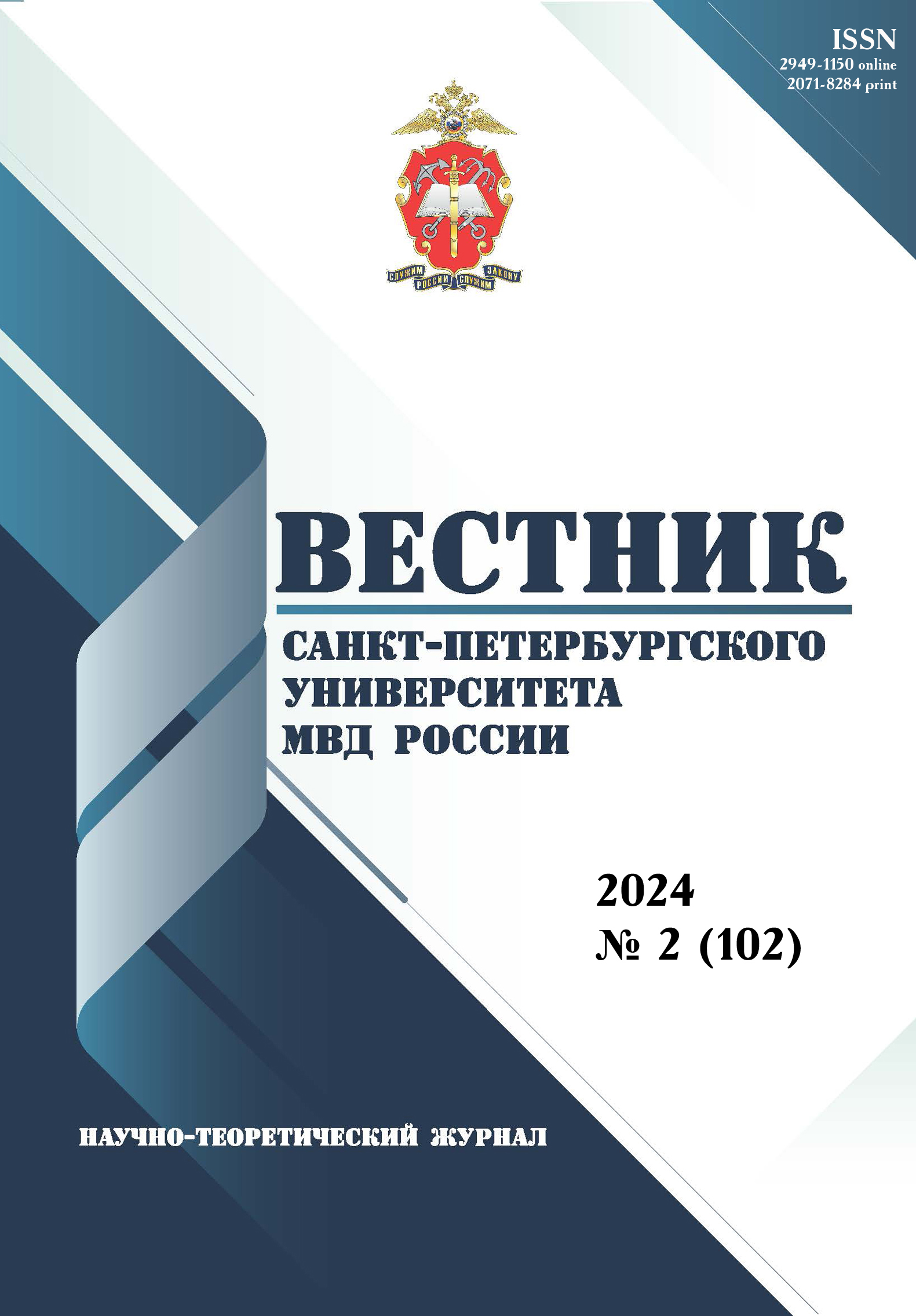UDC 342.56
Introduction. The article deals with the history of the establishment of the body of constitutional justice in Spain during the Second Republic, identifying its legal origins, its legal status under the 1931 Constitution, and revealing its novelties under the Organic Law of 1933. Methods. The research is based on the application of comparative-legal, system-structural and historical methods of research. Particular attention is drawn to the formal-dogmatic analysis of legal acts and records management materials. Results. The article is based on the study of legislation, records of the Court of Constitutional Guarantees, its acts and scientific literature. The author focuses on the problem of adopting foreign models, which has been the subject of debate in the Constituent Cortes. The author suggests that the Austrian model and its modifications, made with regard to the specifics of Spanish political realities, determined the status of the Court of Constitutional Guarantees and the characteristic features of its activity. The attention is drawn to the analysis of the order of formation of the Court and its competence on the main drafts proposed to the founders for discussion, their final legislative formulation, as well as the implementation of the norms in practice. Conclusion. The importance of the creation and its functioning, despite the critical assessments of scholars, is determined by the results of its work and its place in the history of constitutional justice - it was the third constitutional court in Europe, and the norms of the constitutional legislation of 1931-1933 regulating its legal status became an important source of the provisions of the current Spanish legislation on the Constitutional Court.
Head of State, Constitution of 1931, Court of Constitutional Guarantees, constitutional justice, constitutional control, declaring a law unconstitutional, protection of constitutional guarantees
1. Tumanov V. A. Izbrannoye. – Moskva: Norma, 2010. – 735 s.
2. Volkov A. K. Modeli konstitutsionnoy yustitsii E. ZH. Siyyesa i ikh realizatsiya v period Pervoy i Vtoroy imperiy vo Frantsii // Yurfakty : elektronnyy zhurnal yuridicheskogo fakul’teta Natsional’nogo issledovatel’skogo universiteta «Vysshaya shkola ekonomiki». – 2012. – № 2 (5). – S. 46–50. – URL: https://www.hse.ru/data/2013/04/07/1294704599/%D0%AE%D1%80%D0%A4%D0%B0%D0%BA%D1%82%D1%8B05.pdf (data obrashcheniya: 12.01.2024).
3. Lopez J. A. E. Estudios de Historia del Derecho. – Madrid: Agencia Estatal Boletín Oficia del Estado, 2016. – 824 p.
4. Fernández Segado F. Las Constituciones históricas españolas : (Un análisis hist.-jur.). – Madrid: Editorial civitas, 1992. – 822 p.
5. Kelsen H. La garantie juridictionelle de la Constitution (La Justice constitutionelle) // Revue du Droit Public. – 1928. – T. 45. – P. 197–257.
6. Moreno F. S. El Tribunal de Garantías Constitucionales de la II República: (La primera experiencia de justicia constitucional en España) // Revista de Administración Pública. – 2012. – № 188. – P. 423–432.
7. Corcuera Atienza F. J. El constitucionalismo de entreguerras y la Constitución española de 1931 // Historia Contemporánea. – 1991. – № 6. – P. 15–46.
8. Legaz y Lacambra L. La influencia de la doctrina de Kelsen en la ciencia jurídica española // Revista de Estudios Políticos. – 1957. – № 96. – P. 29–40.
9. Álvarez García H. La naturaleza política del Tribunal de Garantías Constitucionales de la Segunda República Española // Revista de Derecho Político. – 2011. – № 80. – P. 189–200.
10. Aguiar de Luque L. El Tribunal de Garantías de la II República: una reflexión // Revista Española de derecho constitucional. – 1983. – № 8. – P. 289–297.
11. Tomás Villarroya J. El recurso de inconstitucionalidad en el Derecho español, 1931–1936 // Revista del Instituto de Ciencias Sociales. – 1968. – № 11. – P. 11–52.
12. Cruz Villalón P. Dos modos de regulación del control de constitucionalidad: Checoslovaquia (1920–1938) y España (1931–1936) // Revista Española de Derecho Constitucional. – 1982. – № 5. – P. 115–146.
13. Kel’zen G. Kto dolzhen byt’ garantom konstitutsii? // Shmitt K. Gosudarstvo : Pravo i politika / per. s nem. i vstup. st. O. V. Kil’dyushova. – Moskva: Izdatel’skiy dom «Territoriya budushchego», 2013. – S. 359–410.
14. Rué Lapeña R. M. El recurso de amparo durante la II República Española // Revista de Estudios Políticos. – 1979. – № 7. – P. 291–298.
15. Álvarez Bertrand P. El Tribunal de Garantías Constitucionales como órgano de tutela de losderechos fundamentals ; Tesis doctoral. – Universidad de Oviedo, 2015. – 501 p.
16. Urosa Sánchez J., Pérez E., Ruiz Rodríguez I., Marhuenda García F. El Tribunal de Garantías Constitucionales de la II República : Colección documental. – Madrid: Consejería de Educación,1999. – 1057 p.
17. Fossas E. La respuesta de la República ante la rebellion del 6 de octubre de 1934 en Cataluña // Revista española de derecho constitucional. – 2020. – № 120. – P. 169–197.
18. Rallo Lombarte A. El Tribunal de Garantías Constitucionales como tribunal de garantías electorales // Revista de Estudios Políticos. – 1996. – № 92. – P. 251– 279.
19. Rubio Llorente F. Del Tribunal de Garantías al Tribunal Constitucional // Revista de Derecho Político. – 1982–1983. – № 16. – P. 27–38.
20. Esteban J. (de), Gonzáles-Trevijano P. J. Tratado de Derecho Constitución III. – Madrid: Universidad Complutense, 2000. – 920 p.













